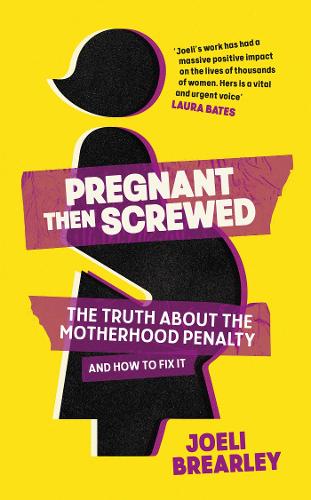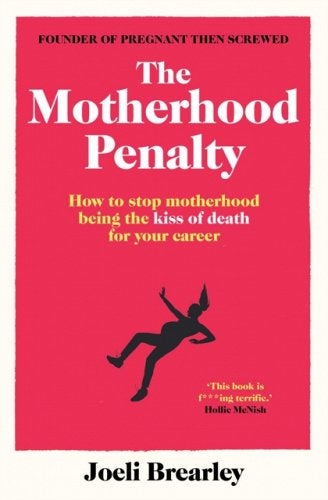Does Pregnancy Still Affect Your Career?
Photographed by Eylul Aslan.
Pregnancy and maternity discrimination are nothing new. The explicit bias in the workplace against women and people with wombs who are pregnant is a longstanding fact and something we’ve largely been expected to put up with. In recent years there have been increasing calls to tackle this issue head on, led in large part by Joeli Brearley, who founded Pregnant Then Screwed in 2015.
When these kinds of stories fall from the headlines and new stories become the focus, it’s easy to assume that something must have improved since the original story. Surely getting pregnant in 2023 won’t affect your career as much as it would have done five or 10 years ago, right?
AdvertisementADVERTISEMENT
Unfortunately that is not the case. The pandemic has exposed the many holes that women fall through, work-wise, when pregnant, and the ways in which the UK government has neglected to fix them.
To get a better understanding of how pregnancy affects your career in 2023, we spoke to Joeli about her book, The Motherhood Penalty.
What are the ways that pregnancy affects your career?
From the moment a woman gets pregnant, bias kicks in, with colleagues and with employers pigeonholing you as distracted and uncommitted to your job because you're having a baby. With the majority of women it's very subtle, like your personal development reviews suddenly going from excellent to substandard, or comments being made about whether you're going to bother returning to work, or being left out of a project or training opportunities. However, it can also be really overt discrimination, like it was for me. I told my employer that I was pregnant and the next day they sacked me by voicemail.
There’s also the threat of redundancy. Lots of pregnant women find that they're up for redundancy but you don't have an ounce of protection when you're pregnant, only when you're on maternity leave. And there's really severe bullying and harassment that is often done behind closed doors – it's not documented so that you can't prove anything in court but there’s a direct drip-feed effect of really nasty comments that make you feel completely worthless. We've had really hideous stories of bullying being so ruthless and so horrendous that women have gone into labour prematurely and ended up with very sick babies as a result.
AdvertisementADVERTISEMENT
What factors have an impact on career discrimination?
Class seems to make a big difference: if you work in careers or jobs that are casual work like zero-hour contracts, they likely won’t give you any more hours because you might not be able to lift heavy boxes, you've got to have risk assessments and so on. So we hear from women who are on zero-hour contracts that suddenly don't get any more hours and they feel completely unable to do anything about it. This is the same if you're self-employed – contracts can be terminated and you have fewer rights. Age makes a difference as well. If you've been in the career for a long time, or are at a senior level, you're less likely to face discrimination. Then there are other factors, like race. If you're Black or Asian, you’re more likely to face discrimination than if you're white. If you’re disabled you’re more likely to face discrimination, if you're a single parent you’re more likely to face discrimination.
What impact does this have on women’s wellbeing?
There isn't enough documented data to show this but it certainly was a factor for me and lots of women that I speak to: the stress of experiencing that sort of discrimination has a real impact on your pregnancy and your physical health. After it happened to me I discovered I was having a high-risk pregnancy because my cervix had almost vanished and I could go into labour at any point. And there is research and data that shows that extreme stress of that nature means you have less favourable outcomes when you're pregnant. The link between discrimination and severe health issues for pregnant women is one that really should be improved.
AdvertisementADVERTISEMENT
Plus, the majority of women that I speak to that experience discrimination when they're pregnant, or just after they've had a baby, say that it stays with them for a really long time. The anger is still there, years later, and they're pretty traumatised by it. There isn't any research to back this up but anecdotally I would say that if you experience discrimination when you're pregnant, you're much more likely to have postnatal depression when you have the baby or when you're on maternity leave.
I hate saying you are very vulnerable because some women wouldn't say that they are vulnerable but that the circumstances make them vulnerable. However, you're completely exhausted and going through this very dramatic change in your life where everything around you is changing. The only stable thing women often have is their jobs. That's something that is how it was before you had a baby. So for that to become rocky and that to be unstable can really throw you and make you feel that you've got no stability at all, because everything's in flux.
And of course this has a long-term impact on your confidence at work. So whether you return to the same employer or a different employer, your confidence can be completely on the floor because of your experience of discrimination. Honestly, being with a baby for nine months and not being in the workplace can make you feel a bit crackers when you go back! If you've got this horrible experience of discrimination on top of that then it just really knocks you out and can take a really long time for you to feel yourself again.
AdvertisementADVERTISEMENT
What’s changed since you started Pregnant Then Screwed?
Nothing has changed in terms of policy. There was a report by the Equality and Human Rights Commission in 2016, commissioned by BIS [Department for Business, Innovation and Skills], and that made 10 recommendations for policy change that needs to happen. Not a single one of those has been implemented by the government, which is really, really depressing. The only time we've seen government ministers talk about issues around maternity leave was when Suella Braverman, the attorney general, was taking maternity leave and they quickly rushed through policy so that she could have paid maternity leave for six months and patted themselves on the back for it as if that solved all the problems – completely ignoring the hundreds of thousands of women that have been pushed out of their job because they've got pregnant and no policy change was allowed to happen on that front.
Culturally, things have changed quite a lot. When this happened to me I didn't even know pregnancy and maternity discrimination was a thing. But I think now people are much more aware that it's a real sacrifice. Women are much more aware of the sacrifices they make when they're having a child and they also have the knowledge around how expensive childcare is. I think some employers are much more aware that they have to make their workplace work for women and they're making efforts to do that.
The things we’re campaigning for – access to quality childcare, ringfenced paternity or parental leave, flexible working, better access to justice – are not difficult. They're easy to implement. It's just about priorities. Other countries have done this and they've demonstrated that it really works and it really just has a positive impact on equality. So it's not that we don't have the proof that these things work. It's not that they haven't been trialled in other places. It's just that our government doesn't prioritise it.
AdvertisementADVERTISEMENT
If I'm experiencing pregnancy discrimination, what should I do?
The first thing I always say to people is that if you feel that you're experiencing any form of discrimination, document everything. Try and get everything on record where you can, get people to email you things where you can, make notes of dates and what was said and call us and we will talk you through it and help you with the next stage of the process. We also recommend that before it gets to that point, people in larger companies set up women's support groups. Get women together to talk about their experiences in the workplace and then you can lobby your employer as a group: that's so much more powerful than an individual. If you've got 10-20 women all saying the same thing together, they can't ignore you and they can't then target you like you're the problem.
Try and get allies within the organisation as well. If you're in a smaller organisation, hopefully there are women there who have also had a baby while they're in the company. Talk to them, get them on your side, get them to explain to you some of the challenges that they've experienced so that you can figure out ways to overcome those challenges as they're happening. And you know, if you get unfairly shafted, just try and get another job. There are good employers out there.
And contact us, we will help you however we can.
The paperback of Pregnant Then Screwed (now retitled The Motherhood Penalty)
AdvertisementADVERTISEMENT








